Volcanoes are erupting in The Philippines, but on-fire Australia received some welcome rain. The Iran war cries have been called off and The Donald’s military powers are about to be hamstrung by the Senate. Meanwhile, his impeachment trial is starting, and we’re all on Twitter for a front-row seat.
What Could Go Right? “A surge in benevolence”
What the World Happiness Report says about Covid times is surprising.
This is our weekly newsletter, What Could Go Right? Sign up here to receive it in your inbox every Thursday at 6am ET. You can read past issues here.
“A surge in benevolence”: the pandemic in the rear-view mirror
Now that we have had a little space from the acute phase of the pandemic, some more positive news stories about it are coming to light. Here are two of them.
First, the World Happiness Report—based on interviews with more than 100,000 people from 137 countries—just came out, and worldwide, people were remarkably resilient during the Covid-19 era. People rated their lives, on average, the same during the Covid years of 2020–22 as they did in 2017–19. There was even a “globe-spanning surge of benevolence” in 2020 and 2021. In 2022, benevolent acts like donating, volunteering, and helping a stranger were still up about a quarter over pre-pandemic times. And, contrary to the many, deeply sad stories we heard about how lonely we all were, the report also says that “positive social environments were far more prevalent than loneliness.”
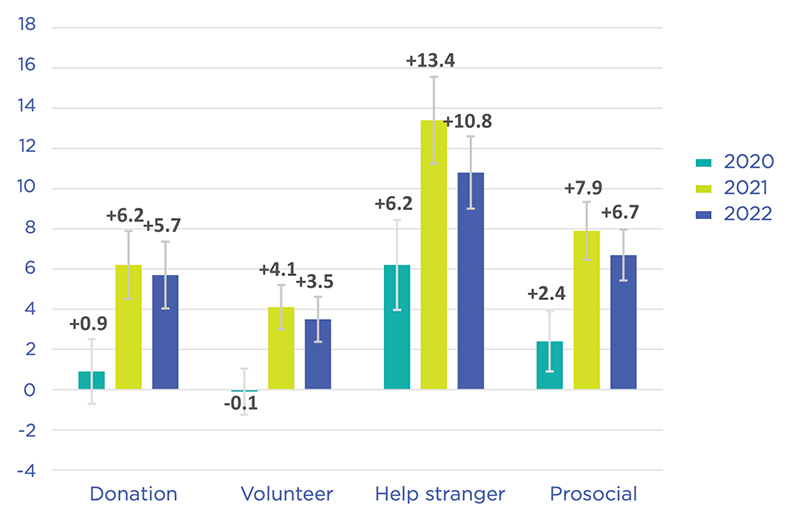
And since everyone always asks which country is the happiest, it’s Finland again, for the sixth year in a row. Among the top 20, the only change to the group—although rankings within it have shifted—is Lithuania, which rocketed up 30 spots since 2017 to reach twentieth place. The country with the smallest difference between the most happy and the least happy? The Netherlands (which is the fifth happiest in total). The United States is number 15. You can see if your country is in the top 20 here.
Second, it’s looking like long Covid is less of a widespread problem, and less severe, than we thought. For those who do suffer from its baffling and unrelenting symptoms of brain fog, pain, and fatigue, it remains a serious and debilitating issue. But early research pointed, on the high end, to a third of Covid-positive people ending up with long Covid. New research, however, has found the previous research to be flawed, and suggests two things, writes science journalist Jeff Wise in Slate: that most patients’ long Covid symptoms “resolve in less than a year,” and those whose symptoms continue beyond that are a “very small percentage.” Considering that during the height of Covid, some were expecting a wide swathe of the American public to become disabled, this is very good news.
One quick mention: the opioid epidemic
Given the US’ longstanding opioid epidemic, I have been keeping an eye out for any progress on the topic, and let me tell you, it is hard to come by. Our team spotted this item, though, in the newsletter of our friends at Future Crunch: drug overdose deaths in the US may be plateauing or dipping—it’s hard to tell, since the 2022 data is still provisional.
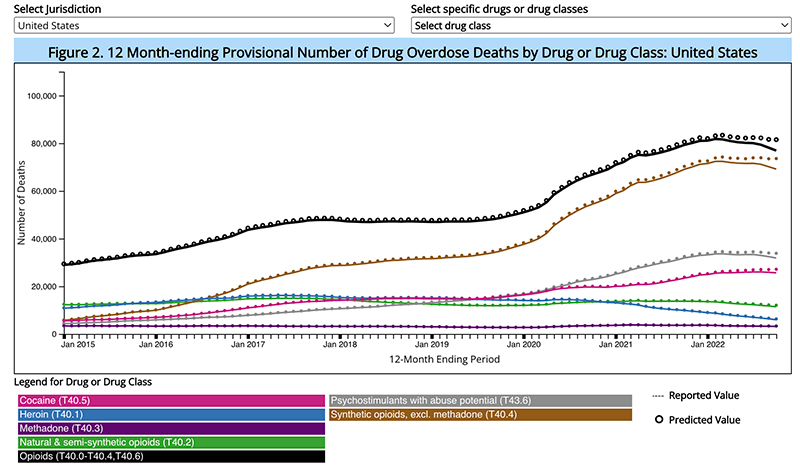
We’ll keep checking back on that, but as the Future Crunch newsletter put it, it’s the first encouraging sign we have seen.
Before we go
Three drug treatments for cystic fibrosis (CF) have so altered the future of children diagnosed with the condition that the Make-A-Wish Foundation has decided not to offer wishes for it automatically anymore. Instead, wishes will be given on a case-by-case basis since many patients with CF now “lead long, healthy lives.” This whole story is a tearjerker.
Below in the links section, baby sharks (doo-doo doo-doo doo-doo—sorry), GPT-4, cosmic concrete, and more.
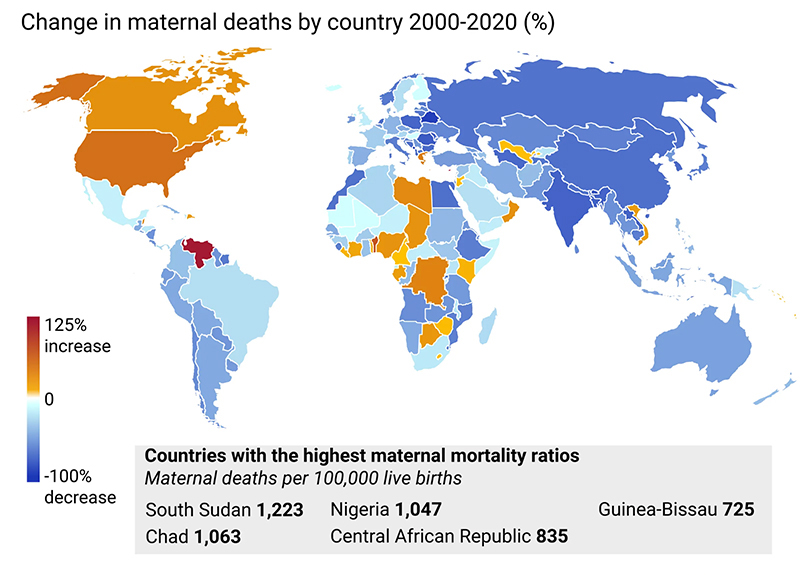
There’s been a lot in the news about declines in maternal mortality stalling or reversing in some parts of the world, including the US, since around 2016. That is both true and not good. But it is also true (and good) that the global maternal mortality rate fell by 34 percent overall between 2000 and 2020. | Chart: GZERO
Entangled with Isaac Saul | S4 E6
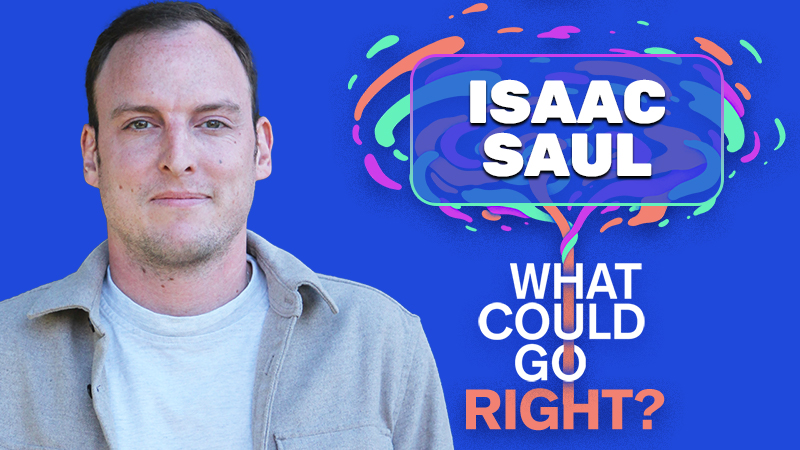
Are we as divided as we think we are? Is it possible to move out of our political and news silos? And is there a way to re-establish trust in the media? Isaac Saul, the founder of Tangle News, shares his effort to offer truly bipartisan journalism. Plus, what’s going on with Silicon Valley Bank, fentanyl test strips, and declassified Covid information? | Listen to the episode
Progress, Please
(Found good news? Tweet at us @progressntwrk or email.)
Other good stuff in the news 🦈
Energy & Environment:
- An eye-opening projection about America’s clean energy future | Heatmap
- Germany’s emissions fell 1.9% last year | Reuters
- Defying Russia’s assault, Ukraine completes a 114-MW wind farm | Electrek
- 500 baby sharks to be released in Indonesia | National Geographic
- Latin America poised to become renewable energy giant | France 24
Science & Tech:
- 7 creative ways people are already using GPT-4 | Freethink
- Meta AI unlocks hundreds of millions of proteins to aid drug discovery | The Wall Street Journal
- A new satellite will track dangerous chemicals in unprecedented detail | Inverse
- Scientists develop ‘cosmic concrete’ to construct habitats on Mars | Interesting Engineering
Politics & Policy:
- India is getting an eye-wateringly big transport upgrade | The Economist
- FCC orders phone companies to block scam text messages | Ars Technica
- New Mexico bans juvenile life sentences without parole | CNN
- California announces Norway-inspired plans to transform San Quentin | The Hill
Public Health:
- The best treatment for depression? It could be exercise. | The Washington Post
- India saved over 3.4M lives due to Covid vaccines | NDTV
- Tanzania’s child mortality rate has fallen by more than 75% over the past two decades | The Citizen
- Smoking rates declined by around one-fifth in Cambodia | Modern Ghana
- CDC inflated data about teen girls and sexual assault | Reason
- The success of chickenpox vaccines | Scientific Discovery
- Mozambique’s death toll from Cyclone Freddy is a fraction of that caused by a similar storm four years ago | Semafor
- Pharma lowers insulin costs to save money | Axios
Economy:
- Stop requiring college degrees for jobs that don’t need them | Vox
- Free childcare expanded in England to try to help parents back to work | BBC
- South Korea U-turns on 69-hour working week after youth backlash | The Guardian
- Workers don’t have to hush for severance anymore. Here’s why it matters. | The Washington Post
- Falling lithium prices are making electric cars more affordable | The New York Times
TPN Member originals 🧠
(Who are our Members? Get to know them.)
- 10 thoughts on building a life you love | Courtney Martin
- Harvard professor answers happiness questions from Twitter | Arthur C. Brooks
- Why so many Americans feel left out | Theodore R. Johnson
- If AI can help us make better decisions, that’s a gamechanger | James Pethokoukis
- Technology of the future shouldn’t trap people in the past | Bina Venkataraman
- Who’s really to blame for SVB and the banking crisis | Zachary Karabell
- Venture catastrophists | Scott Galloway
- A brighter future | Zachary Karabell & Emma Varvaloucas
- Buddhism and a brighter vision of the future | Emma Varvaloucas
- Trump and DeSantis could both lose | David Brooks
- The dream of a religiously diverse democracy is ours to achieve | Eboo Patel
- Was the US invasion of Iraq a colossal failure? A personal account | Faisal Saeed Al Mutar
- Vladimir Putin’s arrest warrant | Isaac Saul
Department of Ideas 💡
(A staff recommendation guaranteed to give your brain some food for thought.)
Will the Ozempic Era Change How We Think About Being Fat and Being Thin? | The New Yorker
A popular, growing class of drugs for obesity and diabetes could, in an ideal world, help us see that metabolism and appetite are biological facts, not moral choices.
Why we picked it: Life-changing medicine or plaything for the rich, the famous, and the already thin? One of my favorite writers, Jia Tolentino, reckons with the new class of drugs for obesity and diabetes—that actually work. —Emma Varvaloucas
New Member Alert
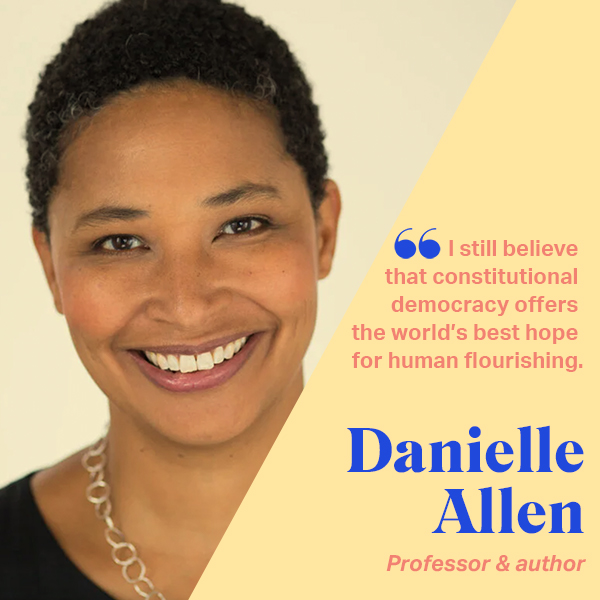
Danielle Allen is a professor at Harvard, democracy advocate, author, and mom. Her work to make the world better for young people has taken her from teaching college and leading a $60 million university division to driving change at the helm of a $6 billion foundation; writing a column on constitutional democracy for The Washington Post; advocating for cannabis legalization, democracy reform, and civic education; publishing numerous books on justice and citizenship; and running for governor of Massachusetts.
Until Next Time
“This is fine.” 🔥


